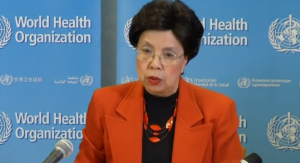
(Reuters) — The World Health Organization has declared the mosquito-borne Zika virus to be an international public health emergency due to its link to thousands of suspected cases of birth defects in Brazil.
WHO Director-General Margaret Chan told reporters on Monday (February 1) coordinated international action was needed to improve detection and speed work on a vaccine and better diagnostics for the disease, although curbs on travel or trade were not necessary.
The emergency designation was recommended by a committee of independent experts to the U.N. agency following criticism of a hesitant response so far. The move should help fast-track international action and research priorities.
“I am now declaring that the recent cluster of microcephaly and other neurological abnormalities reported in Latin America, following a similar cluster of French Polynesia in 2014 constitutes a public health emergency of international concern,” said Chan.
However, Chan added that, at the current time, there would be no restrictions placed on travel or trade to try and prevent the spread of the virus.
“The committee found no public health justification for restrictions on travel or trade to prevent the spread of Zika virus. At present, the most important protective measures are the control of mosquito populations and the prevention of mosquito bites in at risk individuals, especially pregnant women,” she said.
The WHO said last week the Zika virus, carried by the Aedes aegypti mosquito, was “spreading explosively” and could infect as many as 4 million people in the Americas.
The WHO was lambasted for reacting too slowly to the Ebola epidemic in West Africa which killed more than 10,000 people in the past two years, and has promised to do better in future global health crises.
Brazil has reported some 3,700 suspected cases of microcephaly, in which infants are born with smaller-than-usual brains. The Health Ministry has linked the condition to Zika, although the connection is not yet definitive.
“The experts agree that a causal relationship between the Zika infection during pregnancy and microcephaly is strongly suspected, though not yet scientifically proven,” confirmed Chan.
Brazilian Health Minister Marcelo Castro told Reuters on Monday the epidemic was worse than believed because in 80 percent of cases the infected people had no symptoms.
As the virus spreads from Brazil, other countries in the Americas are also likely to see cases of babies with Zika-linked birth defects, experts believe.








